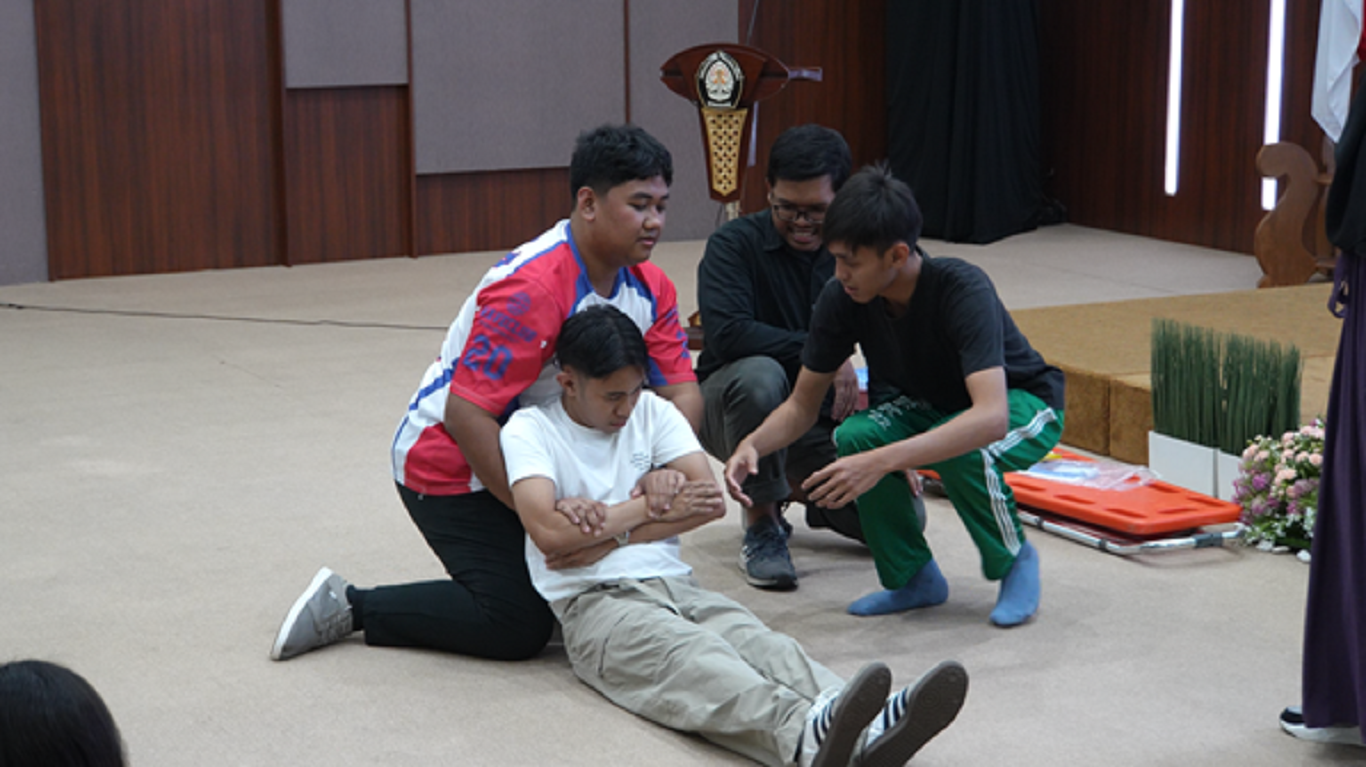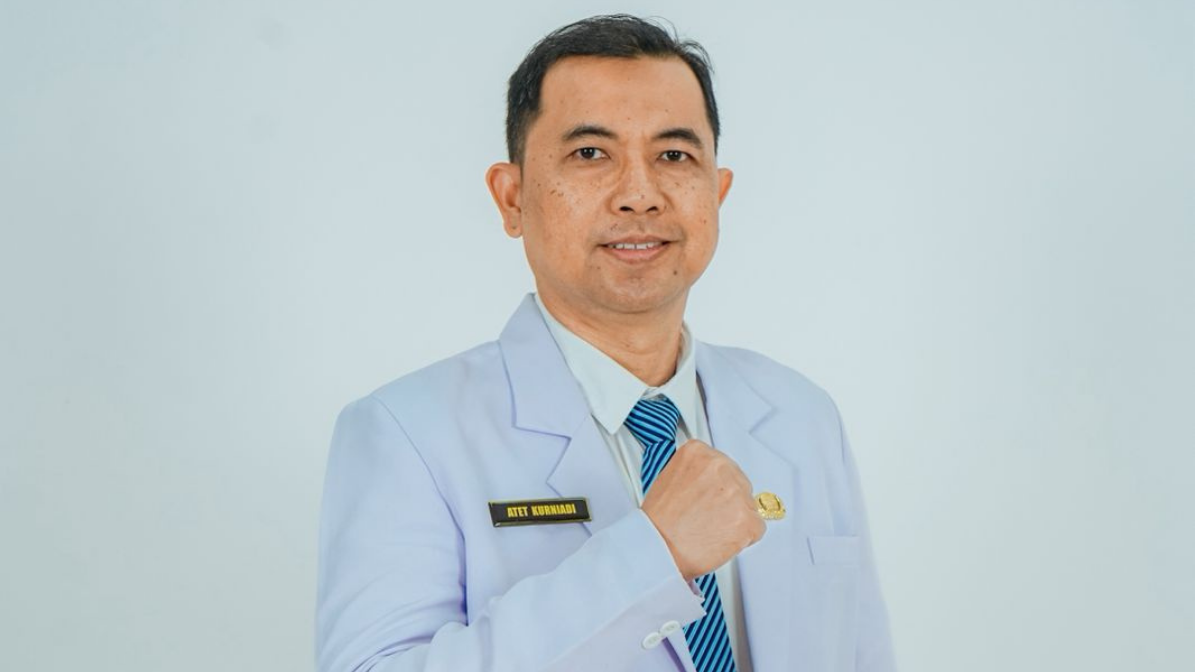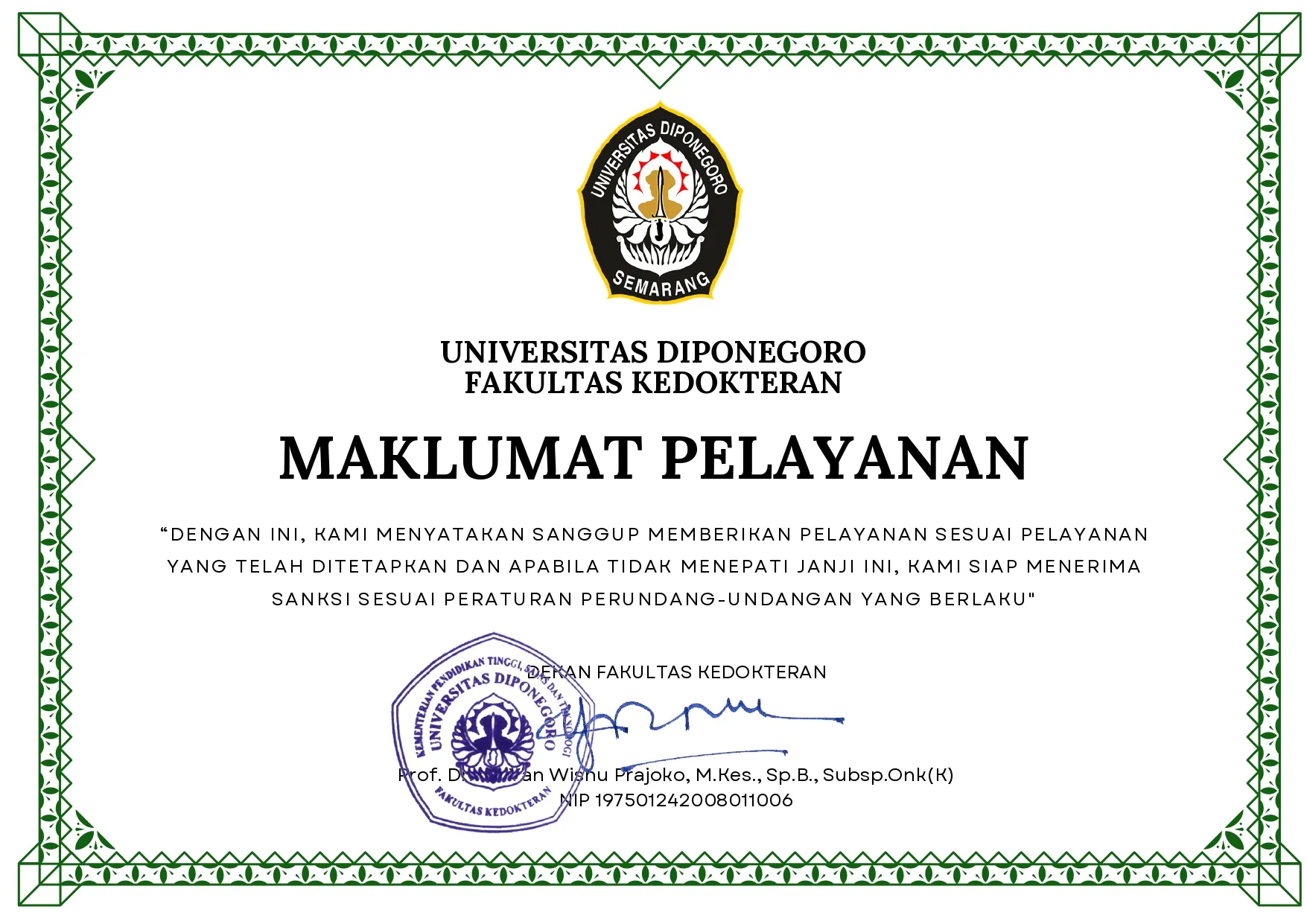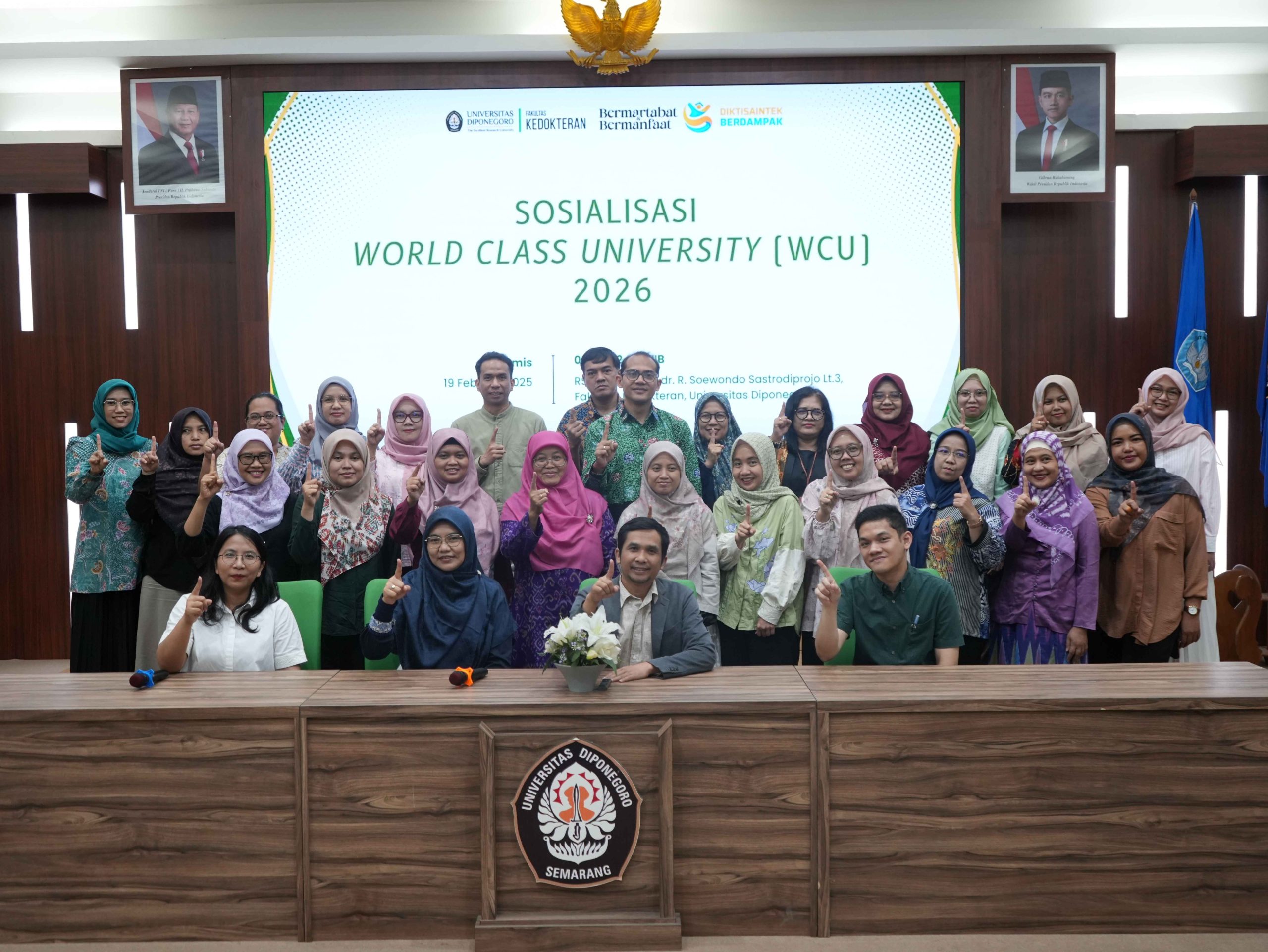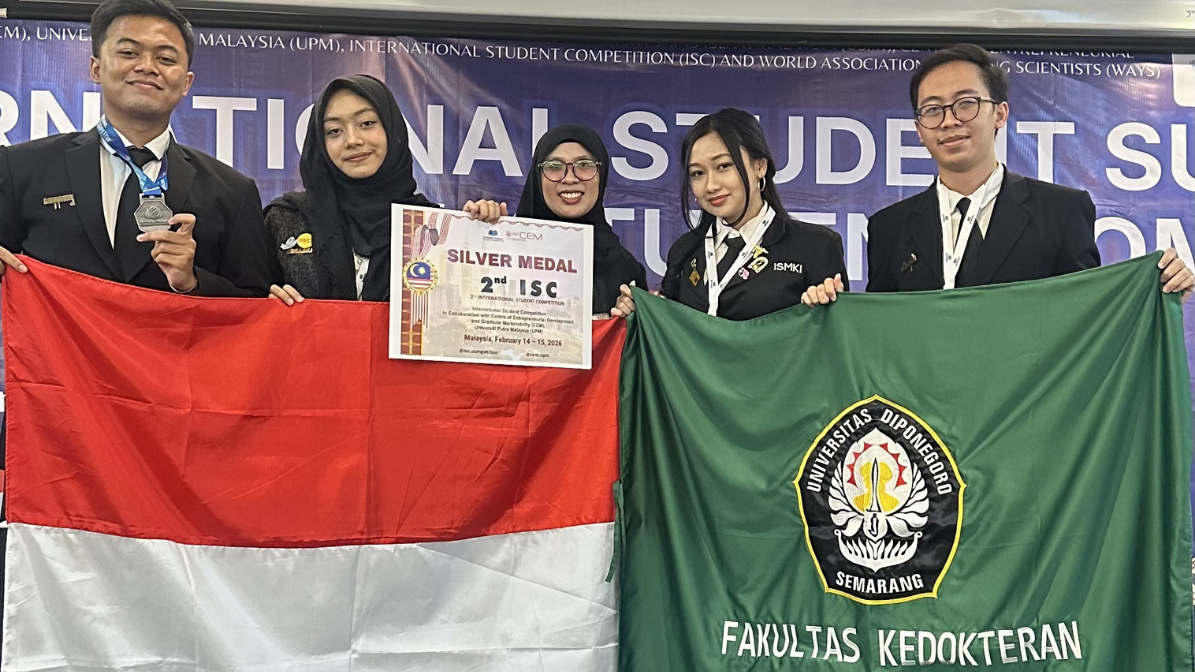Semarang, August 2025 – The International Summer Course on Disaster Behavioral Health in Preventing Disaster-Related Social Issue organized by the Faculty of Medicine, Universitas Diponegoro (FK Undip), continued its third day with an in-depth discussion on disaster readiness for healthcare providers, child wellbeing in post-disaster situations, and pentahelix strategies for multi-sector collaboration.
The session opened with experts from the Department of Perioperative and Critical Care Management, Hiroshima University, who introduced participants to the Disaster Management Cycle—covering the pre-disaster, impact, and post-disaster phases. They emphasized the psychological reactions to disasters, including the heroic phase, characterized by altruism from survivors and responders, and the honeymoon phase, marked by heightened morale among survivors.
In healthcare settings, speakers highlighted the urgent need for direct care in evacuation areas, lifesaving nursing activities, and systematic needs assessment of medical institutions. Special attention was given to Post-Traumatic Stress Disorder (PTSD), a common psychological challenge that requires early identification and intervention to prevent long-term impacts.
A dedicated session on child wellbeing in disasters drew strong interest from participants. Experts discussed the multiple impacts disasters have on children, including mental health issues, behavioral changes, developmental disruptions, lapses in vaccination, and nutritional problems. Vulnerable groups such as children with disabilities and those from low-income families were noted as requiring tailored support.
Intervention strategies highlighted during the session included:
- Multidimensional support systems addressing health, education, and social needs.
- Education and resilience-building activities to equip children with life skills.
- Psychological interventions such as cognitive behavioral therapy, play therapy, and trauma-focused approaches.
- Community and school-based programs to integrate mental health services within local systems.
- Parental mental health support to ensure protective factors for children’s recovery.
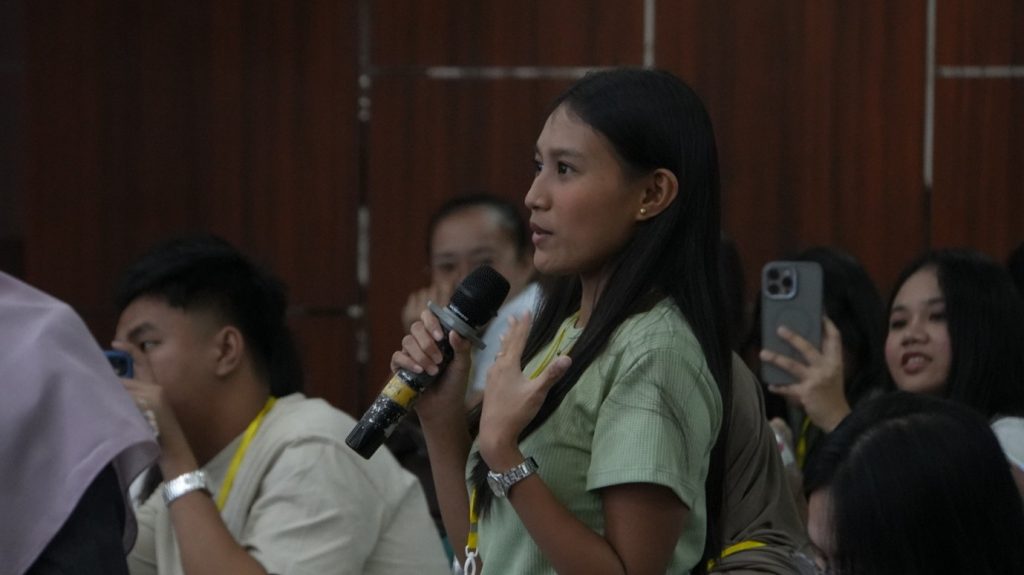
One of the key takeaways was the importance of training pediatricians and primary care providers to recognize and address children’s social and emotional needs through Psychological First Aid (PFA), ultimately improving their quality of life.
The day concluded with discussions on the Pentahelix Collaboration Model, which integrates contributions from government, academia, business, communities/NGOs, media, and security forces (TNI/POLRI). Participants examined practical strategies such as risk mapping, cross-sector simulations, unified command systems, resource mobilization, and continuous social-economic recovery programs.
According to the speakers, sustainable disaster management requires data-driven decision-making, continuous collaboration, and strong community engagement. The active role of students was also emphasized, particularly in research, public service, and healthcare team support during disaster response.
The third day of the Summer Course successfully combined academic perspectives, practical case studies, and international experiences, reaffirming Faculty of Medicine, Universitas Diponegoro’s commitment to building global knowledge exchange in disaster behavioral health.(*)

